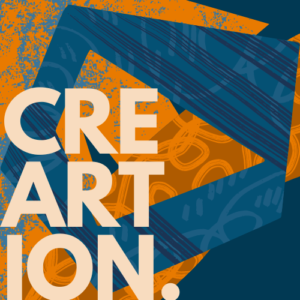Unlocking the Power of Customization: How Personalized Products are Revolutionizing Industries
In today’s fast-paced and competitive market, businesses are constantly seeking innovative strategies to stand out from the crowd and attract customers. One such strategy that is revolutionizing industries across the board is the power of customization. By offering personalized products and services, businesses are able to create a unique and tailored experience for their customers, ultimately driving customer satisfaction, loyalty, and ultimately, increased profitability.
The Rise of Personalized Products
Gone are the days when customers had to settle for one-size-fits-all products. With advancements in technology and manufacturing processes, businesses can now offer personalized products that cater to the specific needs, preferences, and tastes of individual customers. Whether it’s customizing the color, design, size, or even functionality, customers have the freedom to create products that truly reflect their personality and style.
From personalized clothing and accessories to customized electronics and home decor, the possibilities are endless. With just a few clicks, customers can design and order products that are uniquely theirs. This level of personalization not only enhances the customer’s overall experience but also fosters a sense of ownership and emotional connection with the brand.
Benefits for Businesses
The power of customization goes beyond just satisfying customer demands. Businesses that embrace personalized products can reap a multitude of benefits that can give them a competitive edge in the market. Here are some key advantages:
Enhanced Customer Engagement and Loyalty
By allowing customers to actively participate in the design process, businesses can create a deeper sense of engagement and loyalty. When customers feel that their preferences and choices are valued, they are more likely to develop a strong emotional connection with the brand. This emotional bond not only encourages repeat purchases but also drives positive word-of-mouth referrals, ultimately expanding the customer base.
Increased Profitability
Personalized products often come with a higher price tag compared to standard, mass-produced items. This premium pricing can significantly boost profit margins for businesses. Customers are willing to pay a premium for products that are tailored to their unique needs and preferences, as they perceive greater value in the customization options offered. This increased profitability can help businesses invest in further research and development, leading to more innovative and personalized offerings.
Market Differentiation
In a crowded marketplace, standing out is critical for businesses. Offering personalized products sets businesses apart from their competitors and positions them as industry leaders. Customers are more likely to choose a brand that offers customization options over one that does not. This market differentiation helps businesses attract new customers, retain existing ones, and build a strong brand identity.
Data Collection and Insights
Personalized products provide businesses with a wealth of data and insights into customer preferences, trends, and buying behavior. By analyzing this data, businesses can make informed decisions about product development, marketing strategies, and inventory management. This data-driven approach allows businesses to stay ahead of the curve and make proactive adjustments to meet evolving customer demands.
FAQs (Frequently Asked Questions)
Q: How can businesses implement personalized products effectively?
A: Implementing personalized products requires a strategic approach. Businesses need to invest in technology and systems that enable efficient customization processes. They should also ensure that the customization options offered align with customer needs and preferences. Conducting market research and gathering customer feedback can help businesses identify the most sought-after customization features.
Q: Are personalized products only suitable for certain industries?
A: No, personalized products can be implemented across a wide range of industries. While some industries, such as fashion and home decor, have embraced customization more readily, businesses in sectors like automotive, electronics, and even healthcare are beginning to offer personalized options to cater to individual customer requirements.
Q: Will offering personalized products increase production time and costs?
A: Initially, implementing personalized products may require some adjustments to production processes. However, advancements in technology, such as 3D printing and automation, have significantly reduced the time and cost associated with customization. With efficient systems in place, businesses can streamline production and still offer personalized products without compromising on quality or timeliness.
Q: Can personalized products drive customer satisfaction?
A: Absolutely! Personalized products provide customers with a sense of ownership and pride. When customers receive products that are tailored to their preferences, they are more likely to be satisfied with their purchase. This positive experience not only enhances customer satisfaction but also increases the likelihood of repeat purchases and positive reviews.
Unlocking the power of customization has proven to be a game-changer for businesses across various industries. By offering personalized products, businesses can create a unique and memorable experience for their customers, fostering loyalty, and driving profitability. As technology continues to advance, the possibilities for customization are only set to expand, opening up new avenues for businesses to thrive in a highly competitive market.
For more information on the power of customization, check out this link.
